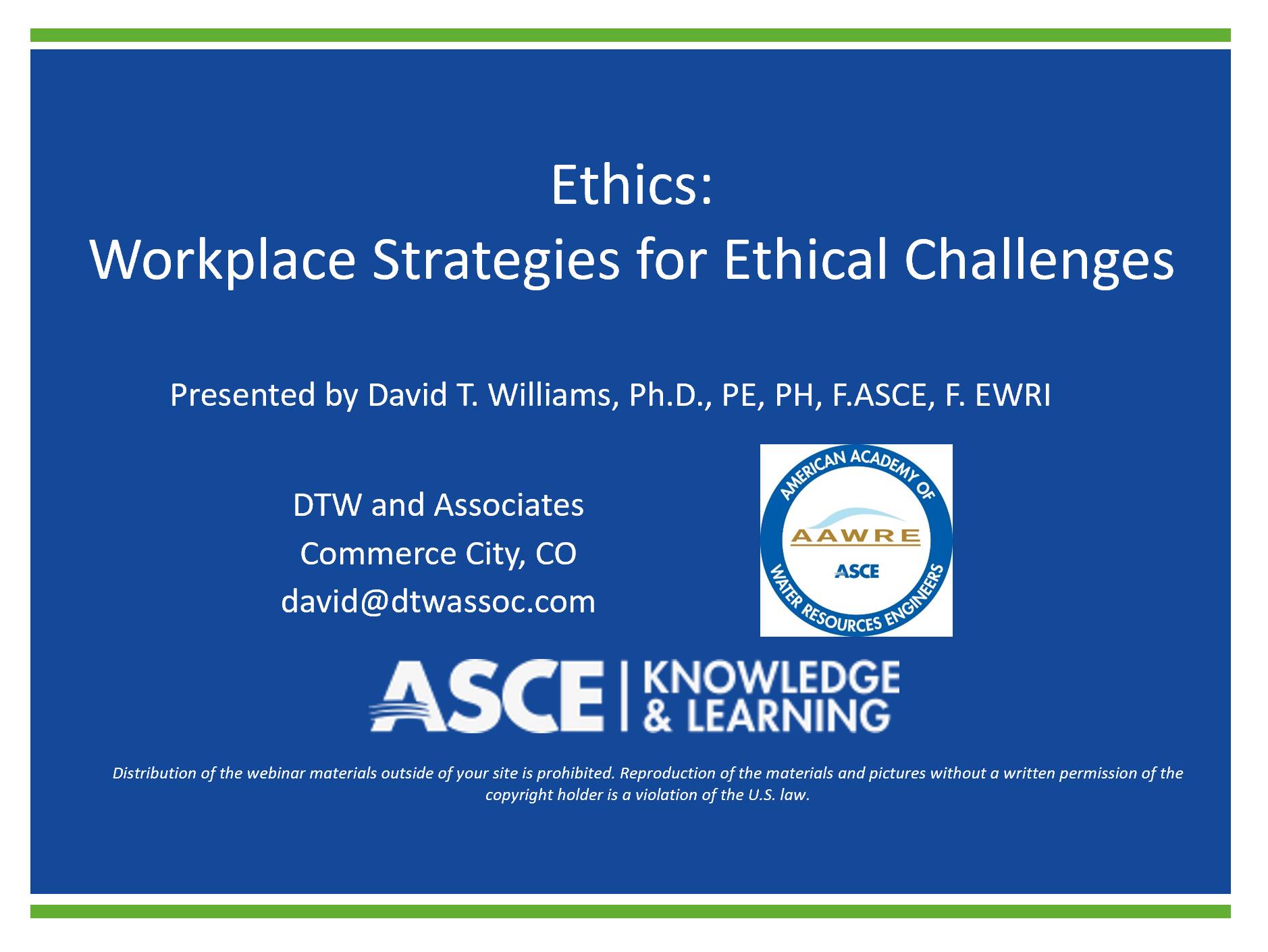082825 Webinar on Ethics: Workplace Strategies for Ethical Challenges

Every day, professionals face decisions that have ethical implications. And while the safety of the organization and the public is every professional’s primary concern, time, personal, and resource pressures can often challenge these commitments. Taking a proactive approach to workplace ethics is the best course to mitigate these risks, avoid legal implications, and build a working atmosphere of integrity, trust, and purpose. In this webinar, we will discuss how to develop a strong and sustainable set of workplace ethics and guidelines designed to mitigate ethics creep, avoid legal implications, and build a solid, ethical foundation for a healthy workplace culture. We will explore common ethical topics and challenges and will detail the best practices when faced with ethically challenging situations. Additionally, we will discuss the difference between a Code of Conduct and a Code of Ethics, and finally, we will review several effective scenarios for academic, private practice and public officials.
David T. Williams, Ph.D., P.E., PH, CFM, CPESC, D.WRE, F.ASCE, F.EWRI
David T. Williams has over 40 years of experience in the water resources industry. His professional experience includes being a Combat Engineer with the 7th Special Forces Group (Green Berets), more than eighteen years as a research hydraulic engineer with the U.S. Army Corps of Engineers at the Waterways Experiment Station (WES, now ERDC) in Vicksburg, Mississippi, both the Nashville and Baltimore Districts (Chief of the Hydrology and Hydraulics Section), and the Hydrologic Engineering Center (HEC) in Davis, California. In the private sector, he has also been President of WEST Consultants, national director for water resources for HDR and PBS&J (now Atkins).
He has been a frequent short course instructor for the American Society of Civil Engineers (ASCE) and other professional and public organizations such as ASFPM and FMA on computer training using HEC-2, HEC-RAS, HEC-HMS, Bridge Scour and HEC-6. He has also been a member and chair of ASCE's Computational Hydraulics, Stream Restoration, Sedimentation, and Uncertainty, and Probabilistic Approaches committees.
Mr. Williams holds a Ph.D., MS and BS in Civil Engineering.
Webinar will begin at about 12:00 p.m. Please click on the Teams link for the webinar at about 11:45 p.m. and enter your first & last names before joining the webinar.
View the Presentation - No NYS PDH: Free - Please send an email to [email protected] to just view the presentation for free.
CSCE Members who want to earn 1 NYS PDH: $25 Note: To be considered for CSCE Member registration, people need to be current on their CT Section Dues.
Non CSCE Members who want to earn 1 NYS PDH: $35
Registrations received and accepted a week before the webinar will incur a $5 additional fee.
Please consider a donation to the CSCE scholarship fund to help civil engineering students from Connecticut. All donations will help students in need. To make a donation to CSCE, please click on the following link:




